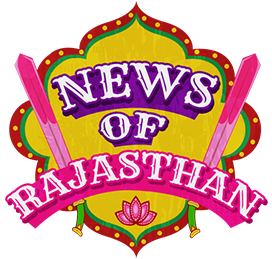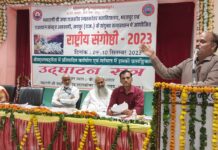
Mayawati, Renuka Chowdhury and HarsimratBadal pitched for it in past, and now Rajasthan CM VasundharaRajeis committed to achieving the same—that is, introduction of pre-packaged food as mid-day meals in government schools.
Earlier in July, Rajasthan Government requested SmritiIrani led Union HRD ministry to modify the definition of MSM (Mid-day Meal) scheme and to allow precooked food in schools. However, the HRD minister rejected this proposal on account of child health issues, but Raje didn’t give up either. Recently, she sent another letter to the centre to re-evaluate this issue afresh. Many other ministers have debated over this issue since a long time, but Raje is determined to pitch her point in a strong manner.
Why Mid-Day Meal is a Topic of Debate between the Centre and The States?
As per the NFS (National Food Security) Act of 2013, the union has clearly laid down MDM rules in 2015. According to union government, it is mandatory for the school administration to provide ‘hot and freshly cooked meals’ to primary and upper primary children studying in government schools. Over 11 crores children enrolled in schools across the country are enjoying these benefits.
While pointing at the issues experienced by school administration in terms of storage and safety of perishable food products, applying preventive measures to check damages caused by pest and appointment of skilled cooking staff, Raje countered the idea saying “Even pre-cooked meals can be served hot”. According to CM, Pre-packaged foods are:
- Easy to store,
- Easier to cook,
- More hygienic,
- No intensive manual efforts are required in cooking,
- Provides relief to school staff,
- Can be altered to maintain uniform nutritional standards.
If this idea is successfully implemented, children will experience the joy of having different menus on different days, which will popularize education system. Consequently, more students, especially girls will be tempted to get enrolled in the schools. Moreover, nutritionists can work on maintaining nutritional balance of the meals to help the students stay healthy. This was a major part of Rajasthan’s Budget 2016 as well.
Continual requests by the CM caused the HRD ministry to ponder over this issue, which is currently under examination.
Ready-Made Meals: What’s Hot & What’s Not?
The Pros:
The idea of ready-made or pre-packages meals is quite tempting since frozen meals require little preparation besides heating up. Many companies have introduced different varieties including organic, vegetarian/non-vegetarian and cultural options. Nowadays, pre-packaged foods come with the option of steaming that allows proper cooking of raw ingredients like vegetables, fish or chicken. The only challenge is to find healthy foods that won’t sabotage a consumer’s nutritional requirements.
The Cons:
Freezing foods for a long time degrades its taste and water levels. To compensate for this, food companies process these meals with extra fat or salt to enhance its flavour. More preservatives are added to increase the shelf life of food products. Also, use of unhealthy oils and raw products can trim down food nutrients, which is a major challenge for the government.
With ongoing debates over mid-day meals, it’s a hard decision for the union ministry. Unless the government appoints experienced nutritionists to inspect the food packaging process, it’ll be difficult to counter health issues. If Rajasthan government successfully introduces healthier, nutritionally superior pre-packaged foods in Rajasthan, more number of parents will be in favour of sending girls to school, thus accelerating the low literacy rate in rural regions. It would be a major achievement for a state as big as Rajasthan.








